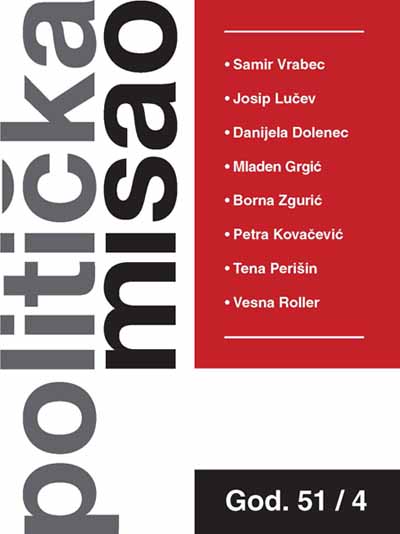Televizijska javna drama: Kako je 11. rujna 2001. postao 9/11
TELEVISED PUBLIC DRAMA: THE CREATION OF 9/11
Author(s): Tena Perišin, Petra KovačevićSubject(s): Media studies
Published by: Fakultet političkih znanosti u Zagrebu
Keywords: 9/11; Terrorist Attack; Public Drama; News; Television
Summary/Abstract: Almost seventy years ago German philosophers Max Horkheimer and Theodor Adorno predicted the immense influence of capitalism and commercialization on media systems and media content. Today commodification and the hunger for fun, spectacle, shock and emotions have become an intrinsic part of media offer and consumption. The central place belongs to television and the transformation of the news industry into packages of high-emotional stories, very often in sequels. Spectacle, strong emotional bond and empathetic members of audience are important elements of what media expert Brian A. Monahan calls public drama – a new hybrid form of television news. The American mainstream media transformed the terrorist attack on the USA on the 11th of September 2001 into “9/11” – a series of dramatic and emotional stories which imposed certain frames of understanding of what happened – and which were built into the cultural memory. In the first few hours after the attack the core of the 9/11 narrative was born: moral shock, a strong emotional bond with the victims of the attacks, transformation of rescuers into heroes, a feeling of love and togetherness among Americans, along with worldwide compassion. Emphasis was put on emotions, fear and a sort of spectacle of crisis, with little discussion about responsibility and critical evaluation of the reasons behind the attacks. Focus on human tragedies, fear and panic are immersed in a wider story about terrorist attacks which is a big threat to America. The power of television and its pictures to form and impose frames of understanding events is huge, along with the long-term consequences this can have on the audience, but politics as well.
Journal: Politička Misao
- Issue Year: LI/2014
- Issue No: 04
- Page Range: 117-141
- Page Count: 25
- Language: Croatian

